Archive
28 September 2018
NWO-groot grant for brain imaging centre CUBE
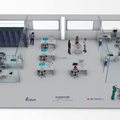
NWO has approved an application for the Center for Ultrasound Brain Imaging at Erasmus MC (CUBE), in which TU Delft is also involved. The science financier has earmarked nearly 2.5 million euros for the realization of CUBE.
25 September 2018
Hyun Youk joins CIFAR Global Scholars network
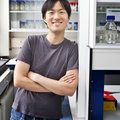
Hyun Youk (Bionanoscience) has been selected as one of the 12 early career researchers who will join the CIFAR Azrieli Global Scholars program. Youk will receive a prestigious two‐year term with 100,000 dollar in research support.
18 September 2018
Graphene tunnelling junctions: beyond the breaking point
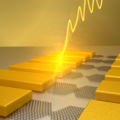
Molecular electronics is a burgeoning field of research that aims to integrate single molecules as active elements in electronic devices. Obtaining a complete picture of the charge transport properties in molecular junctions is the first step towards realizing functionality at the nanoscale. Researchers from Delft University of Technology have now studied the charge transport in a novel system, the ‘graphene mechanical break junction’, which for the first time allowed direct experimental observation of quantum interference effects in bilayer graphene as a function of nanometer-displacements. This new platform could potentially be used for electronic fingerprinting of biomolecules, from DNA to proteins, which in turn can have important implications for the diagnosis and treatment of diseases. The research was partly funded by the Graphene Flagship.
18 September 2018
Delft researchers push the boundaries of optical microscopy
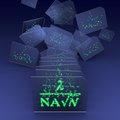
The field of optical microscopy research has developed rapidly in recent years. Thanks to the invention of a technique called super-resolution fluorescence microscopy, it has recently become possible to view even the smaller parts of a living cell. Now, by making a smart refinement to that technique, researchers at TU Delft have pushed its boundaries even further. Where previously objects measuring up to 10-20 nanometres could be observed, their method makes it possible to focus on structures of as tiny as 3 nanometres across.
12 September 2018
NWO Spinoza Prize for Delft bionanoscientist Marileen Dogterom
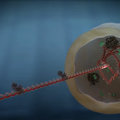
Marileen Dogterom, Professor of Bionanoscience at TU Delft, has been awarded the NWO Spinoza Prize; the highest award in Dutch science. Dogterom carries out research into the dynamics in living cells and leads a consortium which is aiming to build an entirely artificial cell.
11 September 2018
Improved ultrasound device makes images of carotid artery in real time

Researcher Maysam Shabanimotlagh has brought important improvements in ultrasound measurement a step closer. On Wednesday 12 September, he will be awarded his PhD at TU Delft for his work on this technology.
10 September 2018
Have a go at Quantum Computing with Quantum Inspire
For those who always wanted to have a go at quantum computing, QuTech has launched Quantum Inspire.
05 September 2018
Marileen Dogterom named Society Fellow of the Biophysical Society
Marileen Dogterom (Bionanoscience) is one of seven people who will be designated as Society Fellows of the Biophysical Society.
03 September 2018
Cracking the problem of mass produced molecular junctions
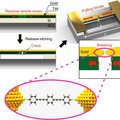
Nanogap electrodes, basically pairs of electrodes with a nanometer-sized gap between them, are attracting attention as scaffolds to study, sense, or harness the smallest stable structures found in nature: molecules. So far this was realised using the common methods of mechanically controlled break junctions, scanning tunneling microscopy based break junctions or electromigrated break junctions. These techniques, however, are not useful for applications due to their lack of scalability. A team from TU Delft in collaboration with researchers from the KTH Royal Institute of Technology in Sweden has now developed a novel way of fabricating molecular junctions.
29 August 2018
Delft biotech pioneer Mark van Loosdrecht receives Stockholm Water Prize
Professors Mark van Loosdrecht (Delft University of Technology) and Bruce Rittmann (Arizona State University) will both receive the 2018 Stockholm Water Prize today for revolutionizing water and wastewater treatment. By developing microbiological processes in wastewater treatment, they have demonstrated the possibilities to cut costs, reduce energy consumption and even recover chemicals and nutrients for recycling.